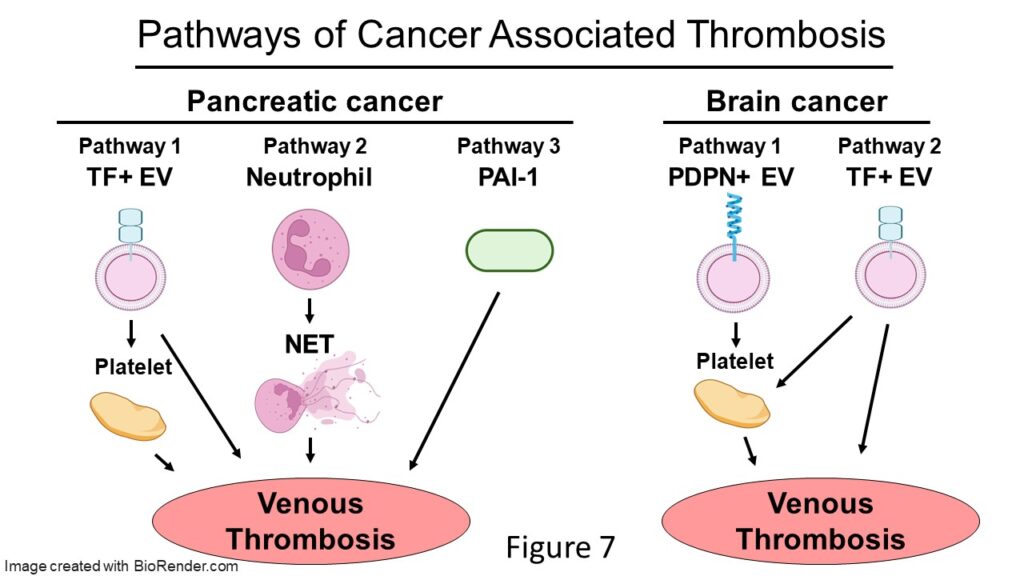Cancer-associated Thrombosis
Cancer patients have an increased risk of VTE compared with the general population. We are interested in the mechanisms of cancer-associated thrombosis (CAT). Importantly, there are different rates of VTE associated with different cancer types. Pancreatic and brain cancer are associated with very high rates of VTE whereas breast and prostate cancer are associated with lower rates of VTE. This suggests that there are different thrombotic pathways associated with different cancer types (Figure 7). We found that elevated levels of microvesicle (MV) TF are associated with VTE in pancreatic cancer patients but not with patients with gastric, colorectal and brain cancer. We have studied the mechanism by which TF+ MVs enhance thrombosis in mouse models. We and others found that human tumors grown in mice release TF+ MVs into the blood and tumor-bearing mice also have an activated clotting system. Recently, we showed that mice with human pancreatic tumors had larger venous clots compared with controls, and that administration of an anti-human TF antibody reduced the size of the clots. These data suggest that tumors release TF+ MVs into the blood and enhance venous thrombosis. Currently, we are studying the role of neutrophils and neutrophil extracellular traps in venous thrombosis in mice with human pancreatic tumors.
